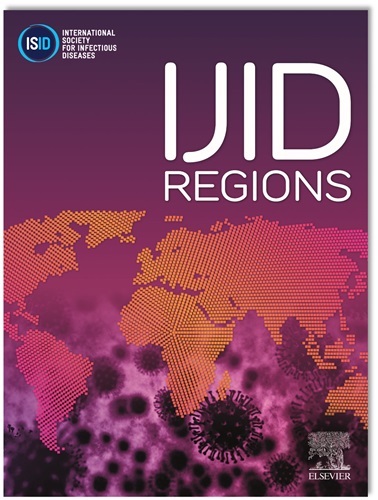应对登革热全球威胁的新解决方案:沃尔巴克氏体干预措施的机会。
IF 4.3
2区 医学
Q1 INFECTIOUS DISEASES
引用次数: 0
摘要
事实证明,在防治登革热的斗争中,依靠传统的病媒控制方法,例如杀虫剂和“清理”减少蚊虫滋生地的努力,越来越无效,而且成本越来越高。以沃尔巴克氏体为基础的蚊子替代战略,即用经沃尔巴克氏体细菌感染的蚊子取代野生蚊子,预防了高达77%的登革热传播,这是预防方面的一项进展。将这一方法纳入当前常规登革热控制工作可减少登革热发病率。然而,必须解决诸如实施成本、国家自主的必要性、将释放的蚊子与当地蚊子种群保持一致、加强对政府当局和公众对沃尔巴克氏体病的益处的教育和宣传、确定国际资助伙伴以及认识到由于环境或社会政治因素该战略可能不太有效的领域等挑战。此外,沃尔巴克氏体替代必须集中在人口密度高和登革热发病率高的地区,因为不可能覆盖所有流行地区。建立强有力的监测系统以监测针对不同登革热血清型的疗效也至关重要。尽管存在这些挑战,沃尔巴克氏体战略是迄今为止在登革热预防方面最有希望的发展之一。通过用有效疫苗补充这一方法,我们获得了显著减少登革热的前所未有的机会。本文章由计算机程序翻译,如有差异,请以英文原文为准。

New solutions against the dengue global threat: opportunities for Wolbachia interventions
Reliance on traditional vector control methods, such as insecticides and “clean up” source reduction efforts for reducing mosquito breeding sites, has proven increasingly ineffective and costly in the battle against dengue. The Wolbachia-based mosquito replacement strategy, which replaces wild mosquitoes with mosquitoes trans-infected with Wolbachia bacteria, preventing up to 77% dengue transmission, represents an advancement in prevention. Integrating this approach into current routine dengue control efforts could reduce dengue incidence. However, challenges such as implementation costs, the need for country ownership, alignment of released mosquitoes with local mosquito populations, increased education and sensitization for government authorities and the public on the benefits of Wolbachia, identifying international funding partners, and recognizing areas where the strategy may be less effective due to environmental or socio-political factors must be addressed. Furthermore, Wolbachia replacement must focus in areas with high population density and high dengue incidence because it is not feasible to cover all endemic areas. Establishing robust surveillance systems to monitor efficacy against different dengue serotypes is also critical. Despite these challenges, the Wolbachia strategy is the one of the most promising developments in dengue prevention to date. By complementing this approach with effective vaccines, we have the unprecedented opportunity to significantly reduce dengue.
求助全文
通过发布文献求助,成功后即可免费获取论文全文。
去求助
来源期刊
CiteScore
18.90
自引率
2.40%
发文量
1020
审稿时长
30 days
期刊介绍:
International Journal of Infectious Diseases (IJID)
Publisher: International Society for Infectious Diseases
Publication Frequency: Monthly
Type: Peer-reviewed, Open Access
Scope:
Publishes original clinical and laboratory-based research.
Reports clinical trials, reviews, and some case reports.
Focuses on epidemiology, clinical diagnosis, treatment, and control of infectious diseases.
Emphasizes diseases common in under-resourced countries.

 求助内容:
求助内容: 应助结果提醒方式:
应助结果提醒方式:


